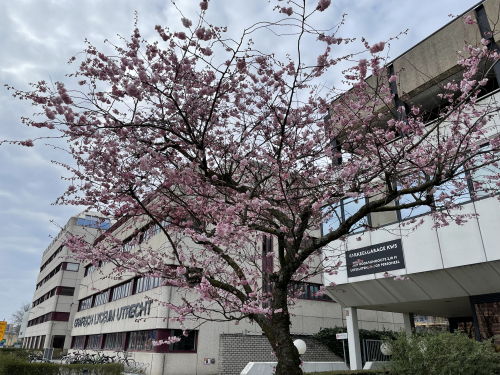Desired outcome
Children and young people are bound to live in our world for a long time, and have a strong interest in sustainable development. They are not often asked to express their own wishes for and views of a sustainable world balancing social justice and environmental protection. In this challenge, we invite you to develop a two-way communication campaign on living sustainably with a low income targeting children and young people, making sure their ideas are heard by politicians and other decision makers.
Initial Problem Description
The UN, EU and other governments have set ambitious targets for sustainable development in the Sustainable Development Goals (Agenda 2030) https://sdgs.un.org/goals and European Green Deal: https://commission.europa.eu/strategy-and-policy/priorities-2019-2024/european-green-deal_en.
While these goals are primarily addressed to governments, the collaboration of all citizens is needed to achieve the goals. However, the strategies are mostly formulated top-down. Children and most citizens are rarely asked to express their own wishes and ambitions for living more sustainably and balancing social justice and protection of the environment. This challenge aims to solicit practical solutions to overcome this lack of engagement of especially children and young people, by reaching out to them, asking them to express their ideas, and putting these on the table of politicians and other decision makers. This would require a well-planned combination of communication channels including social media popular among children and young people and communication channels followed by politicians and other decision makers, as well as the general mass media.
Context
In Utrecht, we are engaging young people in dialogue with citizens with a low income about how these people would like to live more sustainably. Then, the young people take the lead in co-creating solutions for these wishes together with the target group, the municipality and a diverse group of partner-organisations: https://duurzaamutrecht2030.nl/en-gb. We have run into the problem that our communication strategy is not effective to reach out to children and young people, and that it is not easy to bring the ideas of young people to the political decision making tables. We expect this same problem to occur also in other places, but good practices may have been developed elsewhere which could benefit us in Utrecht. We would like you to raise our awareness of such good practices or propose innovative solutions invented by your team.
Connection to cross-cutting areas
General Sustainability: two-way communication about sustainable development with children and young people as well as politicians and other decision makers contributes to more citizen-centric sustainable development in the long term.
Digitalisation: the communication campaign should make use of a combination of different social media, mass media and other communication strategies.
Input
In Utrecht, students have created a card game on nine of the seventeen SDGs to play with children (or adults), as a starter for dialogue on practical solutions for living more sustainably in daily life. The students thought these nine goals are most relevant to the daily lives of children: 1- zero poverty, 3 - good health and well-being, 4 - quality education, 5 - gender equality, 7 - affordable sustainable energy, 10 - reducing inequality, 12 - responsible consumption and production, 13- climate action, and 14 - life below water. Such games could be part of the proposed communication campaign. In addition, students suggested using instagram and other social media popular among children and young people.
Expectations
Besides delivering a plan for a communication campaign we can use in Utrecht, it would be great if the team can look for other similar local initiatives we could collaborate with, to create a critical mass of young people sharing their views and engaging with politicians on bottom-up sustainable development.
Desired Team Profile
communication experts, especially experts in social media and communication channels used by children and young people
expertise in sustainable development, as well as social justice
education / pedagogy specialists
if possible active participation in grass roots / youth organisations working on sustainable development
Additional Information
The Joint Research Centre of the European Commission has formulated twelve Green Competences in the GreenComp framework - the European sustainability competence framework: https://publications.jrc.ec.europa.eu/repository/handle/JRC128040
This framework sets an international standard for the competences children, young people and other citizens would need for putting sustainability in practice. You can use the framework as reference in developing your communication campaign
Related Keywords
About Malsch TechnoValuation
Consultant specialising in ethics and responsible innovation of emerging technologies for sustainable development. Sole proprietor. Strong involvement in publicly funded projects and frequently hired as ethics expert in ethics review of project proposals and as external ethics advisor for R&D&I projects. Coordinator of Duurzaam Utrecht 2030, an initiative aiming to engage with citizens with a low income about their wishes for living more sustainably, and letting young people take the lead in co-creating solutions together with the target group, municipalities, and a broad range of partner-organisations.

You need to sign up to apply to this challenge and submit a motivation letter!

Learn more about the topics and find team members!
Help
Need help submitting your proposal or have questions regarding this Open Innovation Challenge?
Contact support

